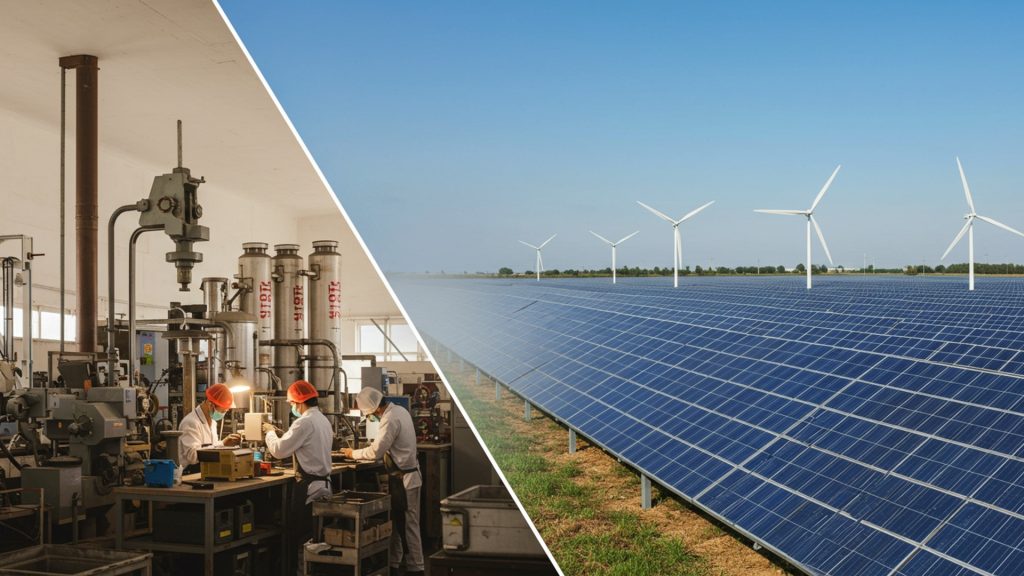The Karnataka government is making it much simpler for small and medium businesses and green energy companies to get and use land across the state. This urgent move, effective immediately, aims to cut down on long waits and complex rules, directly speeding up business growth and making sure more clean power projects get built. By streamlining these land use rules, Karnataka looks to boost its economy significantly, create new jobs. firmly establish itself as a leader in both industrial progress and clean energy development.
New Rules for Land Use
The state of Karnataka has introduced significant changes to its land laws, aiming to make it simpler for Micro, Small. Medium Enterprises (MSMEs) and renewable energy projects to acquire and convert land. These changes come through the Karnataka Land Reforms and Certain Other Law (Amendment) Bill, which was approved by the state Cabinet on August 7, 2025. subsequently passed by the Karnataka Assembly on August 13, 2025. This new legislation amends key provisions within the Karnataka Land Reforms Act and the Karnataka Land Revenue Act, two main laws governing land use in the state. Before these amendments, anyone holding land for agricultural purposes had to seek permission from the deputy commissioner to change its use for non-agricultural activities, as per Section 95 of the Karnataka Land Revenue Act. This process was often lengthy, taking anywhere from four to five months. sometimes even more than a year. It was also known to involve middlemen, causing delays and difficulties for investors. The state had previously attempted to streamline this in 2018 by introducing a single-window clearance system with a “deemed approval” if no decision was made within a month. But, challenges related to land availability and high prices continued to be a hurdle, especially for the renewable energy sector. The new Bill seeks to relax these requirements, particularly for specific types of projects that are crucial for the state’s economic growth and green energy goals. These reforms are part of a broader effort by the Karnataka government to improve the ease of doing business in the state and attract more investments.
Making Land Easier to Get for Small Businesses
A major benefit of the new land law changes is for Micro, Small. Medium Enterprises (MSMEs). The Bill now exempts agricultural lands measuring up to two acres from the mandatory process of converting land use for non-agricultural purposes, specifically when these lands are intended for setting up MSMEs. This means that once land is purchased for an MSME, its use will be “auto-converted” for non-agricultural purposes, removing a significant administrative barrier that previously troubled these businesses. Revenue Minister Krishna Byregowda, who was in charge of the Bill, highlighted that this amendment serves a dual purpose: it aims to make it easier for MSMEs to conduct business and also to reduce the influence of middlemen who complicated the process of land conversion in the past. The previous system of getting land use changed was described as a “herculean task” for MSMEs, often leading to harassment for investors. Beyond this direct exemption, Karnataka has been working on other policies to support its large MSME sector, which includes over 8 million enterprises. The Karnataka Industrial Policy 2025-2030, for example, is designed to create a business-friendly environment for MSMEs, providing them with better access to funds and modern infrastructure. This policy also sets aside 30 percent of plots in industrial areas managed by the Karnataka Industrial Areas Development Board (KIADB) specifically for MSMEs. Moreover, the state has introduced an “Affidavit-Based Approval System” (ABAS). Under this system, MSMEs can begin their operations by simply submitting a self-declaration, stating that they meet the necessary rules and standards. This removes the need for many initial approvals and allows businesses to start promptly. The Federation of Karnataka Chambers of Commerce and Industry (FKCCI) had previously asked for reforms in KIADB, pointing out that land prices in these industrial areas were often too high for small and medium businesses, making it hard for them to get bank loans. Recent amendments to KIADB’s land allotment policy, effective from January 1, 2022, have also reduced the waiting period for industries to gain full ownership of leased land to as little as two years, under a new lease-cum-sale model. This is a significant change, as previously, MSMEs that leased up to two acres had to wait 10 years to receive a sale deed.
Boost for Green Energy Projects
The new law also brings a similar benefit to the renewable energy sector. It removes the requirement for converting agricultural land for non-agricultural use when establishing renewable energy projects, such as solar and wind power plants. This change addresses a long-standing request from the renewable energy industry. Historically, securing land for renewable energy projects in Karnataka has been a significant challenge. Developers faced lengthy approval and procurement processes, which could take between six to nine months. in some cases, even extend to 18 to 24 months. This often caused project delays, especially since central and state tenders typically allot only 12 to 18 months for project completion. High land prices and the lack of formal land allocation policies in some key areas further complicated matters, making Karnataka less attractive compared to other states like Rajasthan, where land is more readily available and cheaper. Karnataka has seen a decline in its installed renewable energy capacity recently, with 424. 94 megawatts (MW) installed as of November this year, a decrease from 1599. 50 MW recorded between April 2023 and March 2024. The majority of the commissioned projects this year have been in solar energy. By simplifying land acquisition, the government aims to encourage more investment and accelerate the development of green energy projects, helping the state to improve its installed capacity and contribute to national renewable energy targets. The state’s commitment to renewable energy is also outlined in policies like the Karnataka Renewable Energy Policy 2022-27. The government is also exploring measures to make “open access transactions” for renewable energy easier and to promote investments in green industrial parks.
Why These Changes Are crucial
The recent amendments signify a strong push by the Karnataka government to streamline administrative procedures and enhance the state’s appeal as a destination for investment. By relaxing land conversion norms for MSMEs and renewable energy projects, the state directly addresses long-standing challenges that have hindered growth in these vital sectors. Previously, the complex and time-consuming process of changing land use from agricultural to non-agricultural purposes was a major source of frustration for businesses and developers. The involvement of multiple government departments, such as the revenue department and panchayats, made the entire process cumbersome. The new “auto-conversion” for MSMEs up to two acres and the complete exemption for renewable energy projects are expected to significantly cut down approval times and reduce the need for multiple interactions with various agencies. These reforms are also expected to curb the influence of middlemen, who previously thrived on the complexities of the old system. This increased transparency and efficiency aim to create a more predictable and fair environment for investors. The government’s decision also reflects a response to the feedback from industry associations, which have consistently advocated for reforms in land acquisition and allotment policies.
Looking Ahead
The Karnataka government has formed a State-level Task Force. This group is responsible for making sure that these new recommendations are put into action quickly. The goal is to build a clear and effective system for rules, helping Karnataka become a leader in economic growth and development. While these changes are expected to bring many benefits, especially in boosting industrial growth and green energy development, there will be continued observation of how they impact various stakeholders, including farmers. The government’s move to increase penalties for certain land-related offenses, even while simplifying conversion, suggests a balance between promoting ease of business and maintaining regulatory oversight. The effectiveness of these reforms will depend on their practical implementation and how they support the state’s broader economic and environmental goals.

